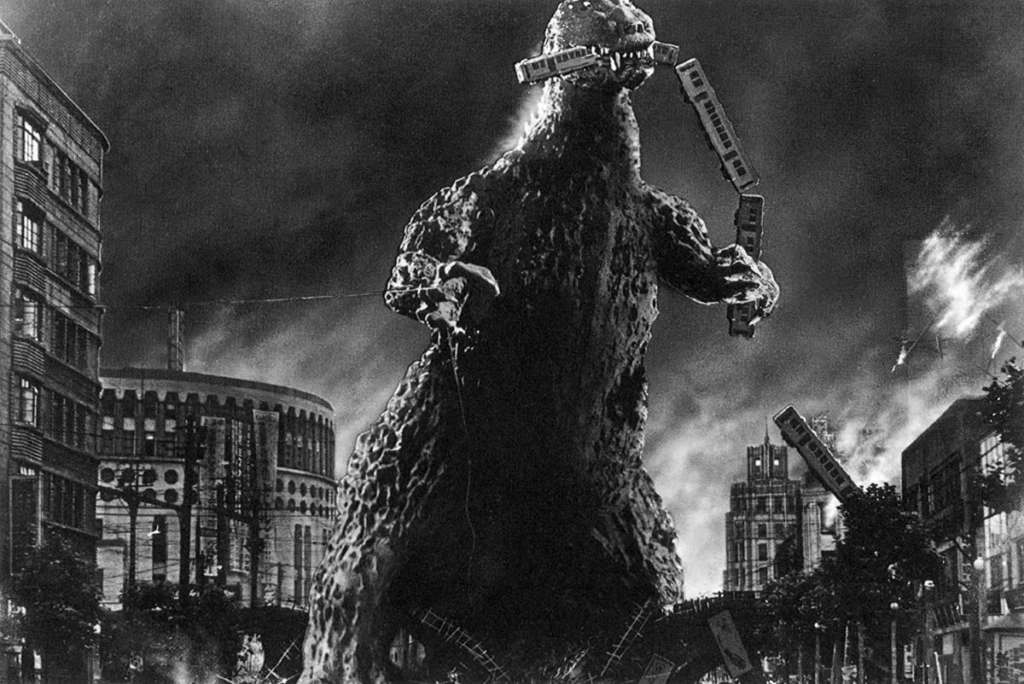GODZILLA (GOJIRA)
(director/writer: Ishiro Honda; screenwriters: novel by Shigeru Kayama, from the story by Tomoyuki Tanaka “The Giant Monsters from 20,000 Leagues Under The Sea,” Takeo Murata; cinematographer: Masao Tamai; editor: Taichin Taira; music: Akira Ifukube; cast: Takashi Shimura (Professor Kyohei Yamane), Momoko Kochi (Emiko Yamane), Akira Takarada (Hideto Ogata), Akihiko Hirata (Dr. Daisuke Serizawa), Seijiro Onda (Senator); Runtime: 98; MPAA Rating: NR; producer: Tomoyuki Tanaka; Criterion Collection/Rialto Pictures/Prime Video; 1954-in B/W-Japan-in Japanese with English subtitles)
“Its anti-war message still resonates.”
Reviewed by Dennis Schwartz
A pre-historic monster is awakened by the American H-bomb tests in the Pacific after WW2, and the radiation affected monster goes on a fire-breathing destructive rampage in Tokyo.
Japanese filmmaker Ishiro Honda (“Latitude Zero”/”All Monsters Attack”) directs it with a righteousness as a postwar Japanese take on his country being nuked. It’s a big-budget sci-fi film with a social conscience that started the monster craze in films and spawned many sequels. Honda co-writes it with Takeo Murata. They based it on the novel by Shigeru Kayama and the story “The Giant Monsters from 20,000 Leagues Under The Sea,” by Tomoyuki Tanaka.
On Japan’s remote Odo Island, the beast, a relic of the Jurassic period has woken up from its peaceful slumber due to the nuclear testing. The natives call the monster Godzilla, and that brings to the island as observers the paleontologist Professor Kyohei Yamane (Takashi Shimura), his young adult daughter Emiko (Momoko Kochi), the young salvage marine Ogata (Akira Takarada), and Emiko’s boyfriend, the sinister war-time, eye-patched, German collaborator scientist, the film’s bad guy, Dr. Daisuke Serizawa (Akihiko Hirata).
In the third act, the military takes on the destructive monster, and in a show of force gets the monster to go out to sea.
The foreboding story still holds up as a serious warning of the dangers from a nuclear arms race. But, the special effects, at the time first-class, is now dated. However, Godzilla remains an essential pop culture film because its well-conceived anti-war message still resonates in these hostile times.
The shortened Raymond Burr American version dubbed in English and altered to leave out America’s nuclear tests affecting Godzilla, should be avoided for distorting Honda’s film.

REVIEWED ON 6/24/2024 GRADE: A-